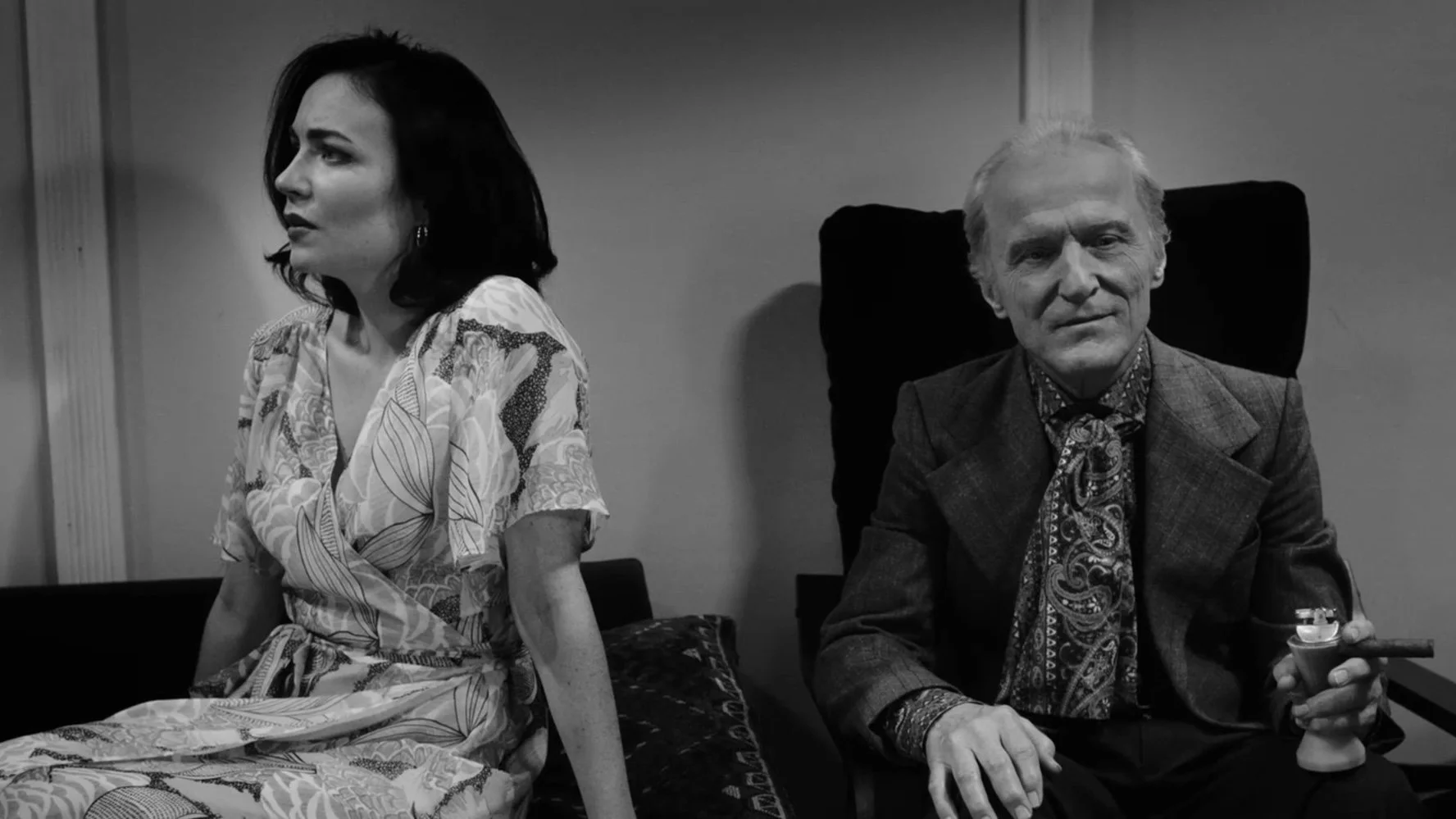
Adieu Lacan
a Film by Richard C. Ledes
“The passion of ignorance is the worst passion of all”
Starring David Patrick Kelly & Ismenia Mendes
A young woman, Seriema, who is trying to understand why her path to motherhood has reached an unbearable impasse, travels to Paris to do psychoanalysis with the maverick French psychoanalyst Jacques Lacan.
Director’s Statement
Jacques Lacan (1901-1981) was a controversial French psychoanalyst who today is widely recognized as one of the most important intellectuals of the 20th century. His work is known for its difficulty but Betty Milan’s writing--on which the film is based--makes him palpably human in a way that inspired me to make ADIEU LACAN.
I was fortunate to find in David Patrick Kelly an actor whose exceptional performance in the role of Lacan profoundly illuminates the psychoanalyst's passion for his work. The performance of Ismenia Mendes as Seriema, the young woman who chooses to do an analysis, forms the perfect counterweight to Lacan as played by David Patrick Kelly: her youth and adherence to the truth of her own experience makes their encounter a riveting one.
Cinematographer Valentina Caniglia and I were particularly inspired by Carl Theodor Dreyer’s film THE PASSION OF JOAN OF ARC. Dreyer’s classic silent film uses extreme angles to portray the radical asymmetry between the position of Joan of Arc and that of her accusers.
We used this same dynamic to represent the role of subjective transference that drives forward the analysis. I was drawn to Dreyer’s 1928 film after watching the drama series IN TREATMENT, starring Gabriel Byrne, which served as an example of what I wanted to avoid. This is not a criticism of the drama series but I was immediately aware how their use of the camera, which worked so well for telling their story of psychotherapy, was completely wrong for telling the story of psychoanalysis.
IN TREATMENT is constantly shot with a camera parallel to the ground at eye-level; the intricate movement of its coverage--largely confined to one room--is one of the principle accomplishments of the show. However, the level camera reflects a theoretical precept: we are watching a therapist intent on remaining in a level and balanced relationship with his client in an exchange in which both sides remain equals.
In psychoanalysis--at least in the work of Freud and Lacan--the analyst is in the position of the cause of desire for the person doing an analysis--a completely asymmetrical relationship, as anyone who has had parents or a caregiver or been in love can attest.
This approach in psychoanalysis is due to the theorization of transference, I felt it was crucial that I get this right: the high, low and often Dutch angles of Dreyer’s film were the inspiration for the solution that Cinematographer Caniglia and I worked out. In the months leading up to filming, we met repeatedly in order to formulate, review, throw out and totally revise our approach to filming each scene. I knew that--at the moment of filming--we could make decisions about the camera that, paradoxically, would be completely spontaneous and based on the actors' work because of our preparation.
I feel extremely fortunate and grateful for the work of all of the members of our small cast and crew. With a very limited budget and amount of time their dedication made the film possible and brought this important story to life.
Richard C. Ledes

Audience Reviews
Adieu Lacan (2022)
Based on the Play & Novel
“Goodbye, Doctor” & “Lacan’s Parrot”
Both by Betty Milan
Synopsis
“With realistic acumen and artistic expertise, ADIEU LACAN portrays the struggles of a young woman, Seriema, who is trying to understand why her path to motherhood has reached an unbearable impasse. Following two miscarriages and the possible loss of her marriage, Seriema travels to Paris in 1972 to undergo psychoanalytic treatment with the maverick French analyst, Jacques Lacan. Her analysis is an attempt to help her to disentangle the enigma of her question: why has motherhood become a seeming impossibility?
Inspired by the story of Betty Milan, a Brazilian psychoanalyst and writer, it follows closely her own actual psychoanalysis with Lacan. Based on her play “Goodbye, Doctor” and her novel “Lacan’s Parrot,” in which Milan recounts her analytic work, ADIEU LACAN offers an insightful and accurate account of an actual psychoanalytic cure.”
- Mavis Himes, Psychoanalyst and author of "The Power of Names."
Cast
David Patrick Kelly
Lacan
Ismenia Mendes
Seriema
Antu Yacob
Gloria
Crew
Richard C. Ledes
Director, Producer, Screenwriter
Cinematographer
Valentina Caniglia
Production Designer
Kory Diskin
Costume Designer
Kathryn O’Reardon
Casting
Kate Geller
-
Project Type: Feature-length Fiction Film
Runtime: 1 hour 32 minutes 41 seconds
Completion Date: 2021
Origin: United States
Language: English
Subtitles: French, Spanish, Portuguese, English
Shooting Format: SPHERICAL 4K ARRIRAW
Aspect Ratio: 4:3
Film Color: Black & White and Color
Press Kit
Download the Press Kit content for the film including, images, key art, poster, and a brochure PDF.












